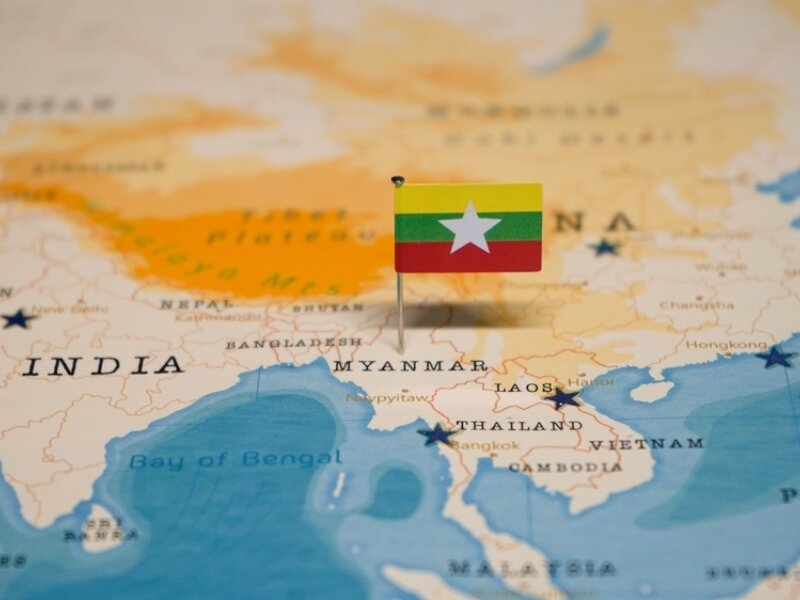The U.S. and the attempt at a historic agreement between the Israelis and Saudis
After months of secret contacts, the possibility of a historic understanding began to leak out last June. Recently, the possibility has returned to the spotlight with Netanyahu’s mission to New York. An analysis by Stefano Marroni

A stringent security agreement modeled on those that have strengthened the relationship between the United States, Japan and Korea in the Far East since the 1950s: a military agreement providing for mutual support in the event of aggression by “hostile powers” in the region, though probably without further deployment of U.S. troops on the ground. Around this understanding - after months of ultra-secretive contacts - the most important diplomatic initiative of Joe Biden’s administration developed over the summer. The goal was to finally reach a peace agreement between Israel and the main actor on the political-military and religious scene in the Muslim world, Saudi Arabia.
A science fiction scenario even just a year ago, when the world was still shocked for the murder of journalist Jamal Khashoggi and Saudi intervention in Yemen. But the world picture has changed. Now, Biden is ready to play a card that if successful can seriously put his shaky race for White House confirmation back on track. And above all, to prevent his main ally in the Gulf, having suffered the cost of the West's green policy and especially of the U.S. well-established energy self-sufficiency, from embarking on dangerous waltz rounds with Putin and Xi, such as those experienced in Washington in recent months as a finger in the eye. On the plate, the U.S. president has to put a pledge to support Riyadh militarily against Iran, in exchange for a commitment to stabilize the entire area by ending hostility against Israel.
After months of secret contacts, the possibility of an understanding began to leak out last June, following U.S. Secretary of State Antony Blinken's mission to Riyadh, vis à vis with Crown Prince Mohammed bin Salman. But last week what put it in the spotlight was the mission to New York by Israeli Prime Minister Benjamin Netanyahu, the third man on the Washington-Riyadh axis. Democrat Biden kept the point of a political and human distance that - during his tenure - never made him open the White House doors to the leader of the Israeli right. But to his interlocutor - looking for a way out of the domestic political and international image crisis triggered by his government in recent months - he made a proposal of the kind that cannot be refused. By offering Israel a Saudi opening that would ramp up the process of normalizing relations with the Arab world, following the "Abraham agreements" with the Emirates and Bahrain and then Morocco. And – most importantly - by strengthening Iran's most important adversary in the Gulf area.
Against this shifting backdrop are the calculations of all the players on the field, aware - in the face of risks and resistance - of the great dividends for each of them, in domestic politics and on the international stage, of an understanding that would be epochal. So much so that in the game, in order not to lose everything, the Palestinians have also decided to come down. As early as March, during a visit to Jeddah, President Mahmoud Abbas had an inkling of a moving situation. Next, in August, Riyadh for the first time appointed its own envoy, Naif al-Sudairi, to Ramallah. And in early September three Palestinian negotiators flew to Riyadh to ask the Saudis not to leave them outside the door. Officially, in the climate of popular outrage over what is called the "apartheid policy" pursued by the Israeli government Israel in the Territories at the urging of Netanyahu's ultra-right ally, Abbas' representatives insisted on the traditional demand for the recognition of a Palestinian state with its capital in East Jerusalem: "We ask only one thing: to put in place a stronger Arab peace initiative," Majidi Khaldi said after the meetings. But several sources explain that in reality--along with the demand to reactivate the flow of aid to the Palestinian Authority--Abbas is asking the Saudis to include in the negotiations with the United States a demand to support full Palestinian admission into the UN and to force Israel to cede control of a larger portion of the West Bank to Abbas.
Challenging demands, but ones that at home Mohammed bin Salman cannot dismiss with a shrug. Not coincidentally, according to a very informed background by Thomas Friedman in the New York Times, in his face-to-face with Netanyahu Biden started with the Saudis. "If we want them to normalize their relations with you," he explained, "we have to know that it will be very hard" for them to put aside the hostility against you of the whole Arab world, and the traditional policy of bin Salman's father, King Salman bin Abdulaziz. As for me," the president added, "I have to sign a military mutual defense agreement and provide more weapons to a country that I called "a pariah" only three years ago. This is something that could go sideways with much of Congress," Biden would have continued, "just like the choice to allow Riyad to launch a civilian uranium enrichment program that we would strictly control, but that will not please many people, and I don't think you will either. I mean, as you see, my friend, it's going to be difficult for everybody. And so you too must do your part at home. You have to limit new settlements of settlers in the West Bank, improve the living conditions of the Palestinians, and more generally take "visible steps forward" in the direction of "two peoples-two states." All - understand me - "in the coming weeks."
It is this narrow window, with late fall at the latest on the horizon, that is Biden's real nagging: the gamble of an 82-year-old president who, at least on the international front, certainly does not appear to be the "Sleepy Joe" sketched by Donald Trump. Something is already beginning to stir on the surface as well. On September 25, for the first time, an Israeli minister, Harim Katz, flew to Riyadh to attend a UN conference. But the path to agreement will not be a walk in the park, in the face of the evidence -- in the words of U.S. National Security Adviser spokesman John Kirby -- that "in deals this complex, everyone will have to make concessions." Netanyahu's prediction has been circulating in the Israeli press for days, convinced that "a historic agreement" is in sight and that the Saudis will go along even in exchange for "minimal openings" to the Palestinians. But there is widespread disquiet in Jerusalem over the Saudi nuclear go-ahead. And above all—the Jerusalem Post reports--the ultra-right allies of "Bibi," held in the saddle by a government that is the main shield to his indictment, are already warning the prime minister: "No concessions in the West Bank."



